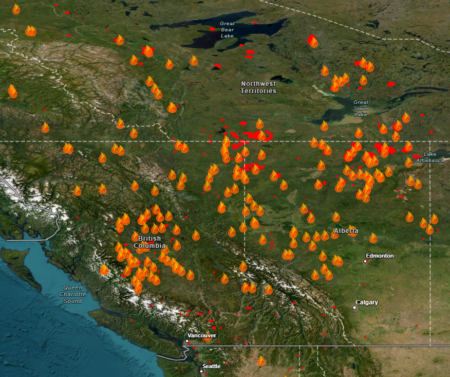On my first day of work for Environment Canada in August 2007, I was staying in the basement of a family friend in Orleans. I had never taken the transit route to the Terrasses de la Chaudière (TLC) complex and it was already hot in the early morning, doubly so in a suit and tie.
Since I was on an express bus, I falsely assumed that it would stop at every stop, like a subway train, even if nobody pressed the stop request. As such, I found myself zooming past the LeBreton Flats stop where I was meant to change buses.
I didn’t yet have a smartphone, and I didn’t know the route for the bus — so I didn’t know if waiting on the opposite side of the street would yield a bus going back to the stop I missed. Since I was still very early for work and the bus had only driven a few minutes between stops, I got off and began walking back east along the transitway.
Soon I was stopped by a police squadcar, who, despite my explanation of having my first day of work starting and not knowing the bus routes, insisted that I could not walk along the edge of the dedicated bus road. Oddly, they told me I should walk through an area of empty scrubland to a railway bridge, and walk across that into Quebec.
It seemed an odd choice for the police. Either they were trying to uphold the law or protect my safety, but neither objective was clearly served by this plan. Nonetheless, it would be years yet before the city fenced off the out-of-service Price of Wales bridge, so I was able to walk across without trouble, reach work early, and meet my first colleague.
I told her the story of my walk hoping it would be a small humanizing connection between the two of us, but she rapidly shared the story with the whole office.
I was reminded of the whole incident while waiting by my departure gate at Pearson airport this morning, because I ran across a news story about how the bridge is being converted into dedicated cycle infrastructure. That seems like a great choice. The nearby Chaudiere bridge is rather harrowing, with cars racing down the narrow lanes quite close to exposed pedestrians. The nearest nice cycle crossing is essentially at the far side of Gatineau, at the Alexandra Bridge. Hopefully, once the new bike bridge opens I will get the chance to try it on two wheels on a future Ottawa visit. The bridge is in a great location to connect the excellent riverside bike path to, first, the densest concentration of federal government buildings in Quebec and, second, the enormous Gatineau Park which begins as a thin wedge nearby.


